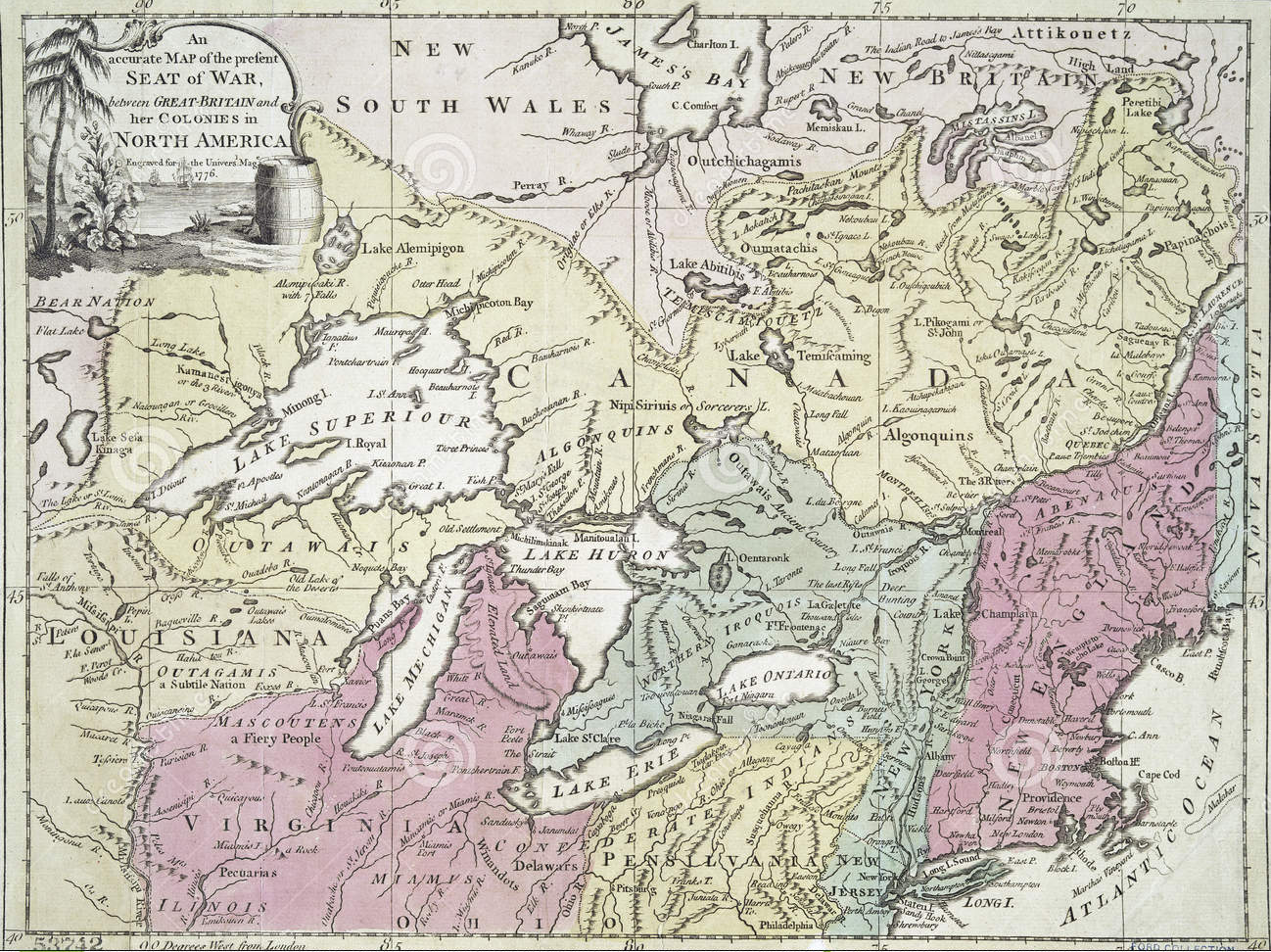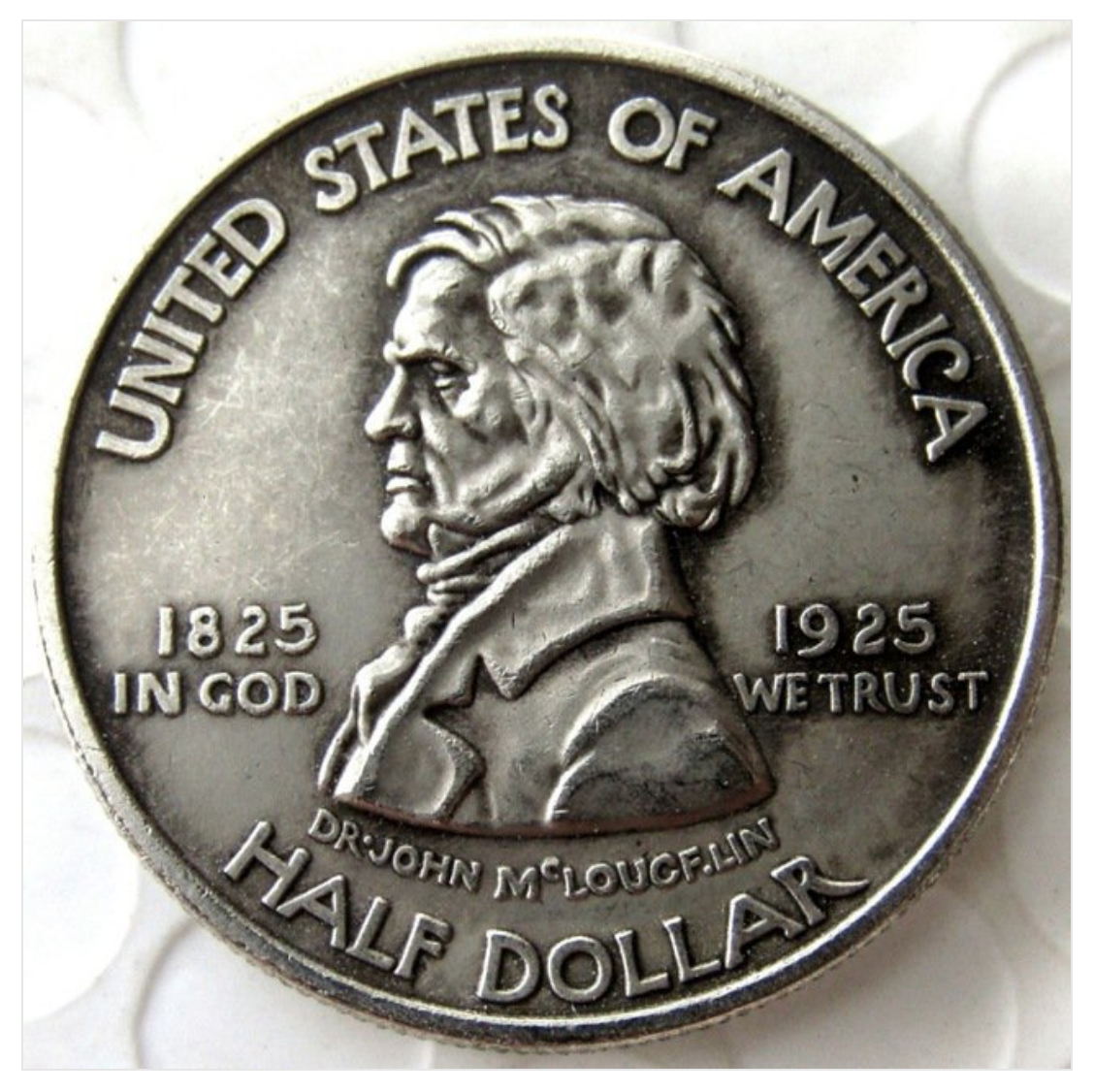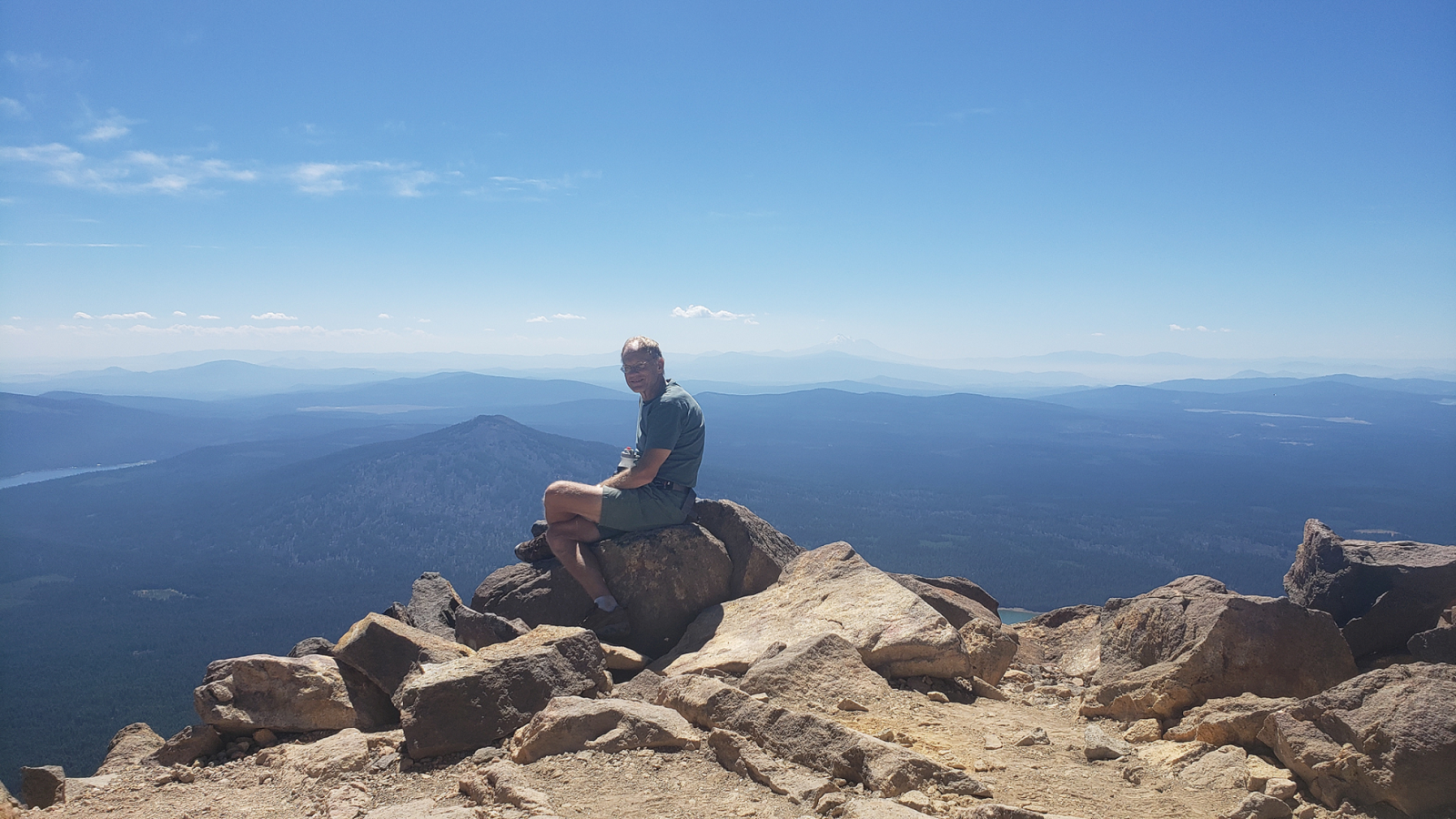Dr. John McLoughlin
by Roger Kaza
Today, a doctor helps expand a nation. The University of Houston presents this program about the machines that make our civilization run, and the people whose ingenuity created them.
At the beginning of the musical Hamilton, I have to keep reminding myself of two things. One, these Founding Fathers we all know and love aren't yet Americans, as we now use the term, they're British colonists. Second, and even easier to forget, is that not all the colonies of North America are going to revolt and invent a brand new country. In fact, depending on whom you count, the majority of them didn't.

There were other colonies besides the thirteen, as shown in this 1776 map.
Photo Credit: Dreamstime.
Which brings us to Dr. John McLoughlin. He was born in 1784 in one of those British colonies that didn't revolt, French-speaking Quebec. How is it then, he's now known as "The Father of...Oregon?"
Here's what we know. At age nineteen, McLoughlin had just passed his medical exams. But instead of following the usual course and setting up a private practice, he abruptly joined a fur trading business, the North West Company. These intrepid souls were a cross between Warren Buffett and Daniel Boone, venture capitalists with a fever for raw adventure. With indigenous peoples as guides and partners, they plied the rivers of Canada in birchbark canoes, searching out the last quarry of lucrative beaver pelts.
McLoughlin's brains and brawn--he was a beefy six foot four--led to a quick rise within the company. After the Nor'westers merged with their rivals, the London-based Hudson's Bay Company, McLoughlin was assigned to govern a distant outpost at the mouth of the Columbia River. The post had been established by New York City tycoon John Jacob Astor, but fell to the Brits after the War of 1812. McLoughlin moved operations upstream to Fort Vancouver, just across the river from present-day Portland, Oregon. Business was booming as the Bay Company scoured the Northwest for furs. McLoughlin branched out and started farms and sawmills in the lush Willamette Valley to the south. For years he held court as a kind of benevolent dictator of this remote forest kingdom.

McLoughlin on a 1925 Centennial half-dollar replica.
There was only one problem. By the 1840s, those uppity thirteen colonies had now doubled to 26 states. Wagon trains of Americans started arriving in droves over the Oregon Trail. McLoughlin had every reason to give these exhausted newcomers a hard time; after all, they were invading what he and his company considered British soil.
But, he didn't. In fact, he befriended them, sold them urgently-needed supplies on credit, knowing it likely the company would not be paid back. This was admirable on a human level, but certainly didn't help the Brits with their land claim. When it came time to define the boundary of the U.S. and Canada, the territory below the 49th parallel went to the United States, whose settlers now lived there. McLoughlin himself became an American citizen in 1849.
A while ago I stood on the rocky summit of Mount McLoughlin, a 9500 foot volcano ruling the skyline of southern Oregon. On a clear day you can see 100 miles in any direction. A fitting tribute, I thought, to this towering figure in French-Canadian, British, and yes, American history.
I'm Roger Kaza, from the University of Houston, where we're interested in the way inventive minds work.

View from Mount McLoughlin.
Photo Credit: Kate Klise.
"In fact, depending on whom you count, the majority of them didn't." At the start of the Revolutionary War, Britain had 23 colonies in North America, thirteen of which rebelled to form the United States. But there were many other colonies or territories besides British: Spanish Florida and Louisiana, the French settlements in the West Indies, etc, bringing the total to far more than thirteen. Interestingly, Quebec was approached about joining the thirteen colonies, but declined. https://en.wikipedia.org/wiki/British_America#North_American_colonies_in_1775.
..."he abruptly joined a fur trading business." McLoughlin, known to be hot-tempered, had apparently roughed up a soldier around this time, and it's speculated that he feared the consequences and may have decided to make himself scarce. He did practice medicine on occasion as needed for his new employers.
"With indigenous peoples as guides and partners," etc. Since Canadians call their aboriginal inhabitants "First Nations," and Americans call theirs "Native Americans," I have chosen an inclusive term. The North West and Hudson's Bay Companies often employed crack Iroquois paddlers, but had extensive trade relations with many other tribes, Canadian and American.
"McLouglin's brains and brawn" etc. McLouglin spoke French and English, and had mastered several Indian languages.
"The post had been established by New York City tycoon John Jacob Astor," etc. For a gripping read of the incredible story of Astor's daring enterprise, see Astoria: Astor and Jefferson's Lost Pacific Empire: a Tale of Ambition and Survival on the early American Frontier, by Peter Stark. Much easier to read than Washington Irving's earlier telling of the same story.
More on McLoughlin:
https://en.wikipedia.org/wiki/John_McLoughlin.
https://www.historylink.org/File/10617.
https://www.nps.gov/people johnmcloughlin.htm.
This episode was first aired on September 15, 2020